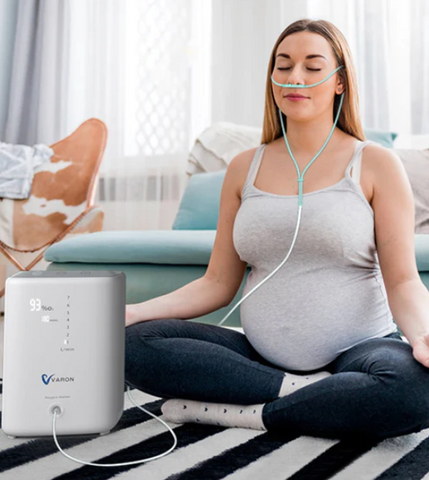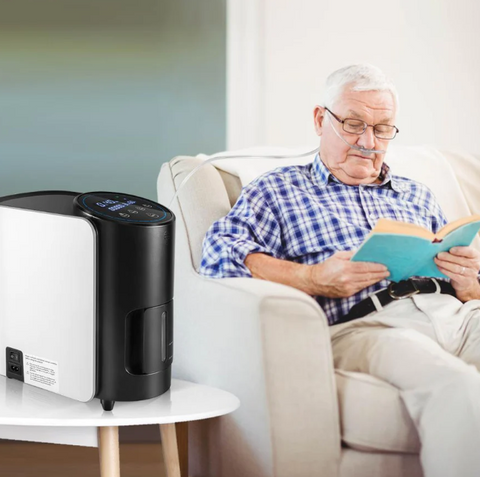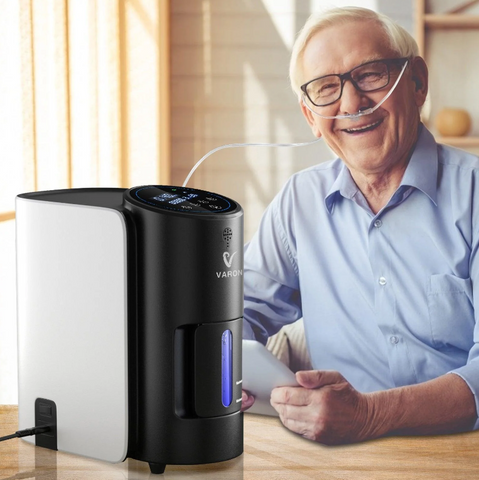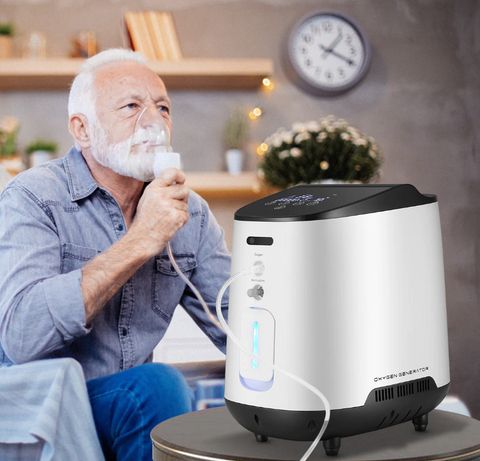Selecting a home oxygen concentrator (HOC) is crucial for managing respiratory conditions and improving your quality of life. This comprehensive guide explores everything you need to know about HOCs, from how they work, advantages of home oxygen concentrators, and the key features to consider when selecting the perfect unit for your needs.
Understanding Home Oxygen Concentrators (HOCs)
HOCs are health care devices that draw in room air, filter out nitrogen, and deliver concentrated oxygen through nasal cannulas or masks. Unlike portable oxygen concentrators (POCs), HOCs are stationary units designed for continuous use at home. They offer several advantages, including:
- Higher Oxygen Output: HOCs can deliver a wider range of oxygen flow rates compared to POCs, catering to individuals with higher oxygen needs.
- Continuous Supply: HOCs provide a constant stream of oxygen, eliminating the need for refilling tanks.
- Reduced Noise Levels: Many modern HOCs operate quietly, ensuring minimal disruption during sleep.
- Compatibility: HOCs can be used with CPAP machines and various oxygen delivery accessories.
Key Features to Consider When Selecting a Home Oxygen Concentrator
With various HOC models available, it's essential to choose one that aligns with your specific needs and preferences. Here are some critical factors to consider:
- Liter Flow: This refers to the amount of oxygen delivered per minute. Your doctor will prescribe the appropriate flow rate based on your individual needs. Ensure the HOC you choose can meet or exceed your prescribed flow rate.
- Power Consumption: HOCs typically use electricity to operate. While energy consumption varies across models, consider units with efficient power usage to minimize your electricity bills.
- Weight and Portability: HOCs are generally heavier than POCs. However, some models are lighter and have wheels for easier maneuvering within your home. Assess your need for portability when making your selection.
- Noise Level: A quiet HOC is essential for a peaceful sleeping environment. Look for units with noise levels below 50 decibels (dB).
- Humidification: Supplemental oxygen can dry out nasal passages. Choose an HOC with a built-in humidifier or one compatible with an external humidifier for added comfort.
- Warranty: A longer warranty provides peace of mind and ensures coverage for potential repairs.
Advantages of Home Oxygen Concentrators
Beyond the features mentioned above, HOCs offer a range of valuable benefits for individuals with respiratory conditions:
- Improved Respiratory Function: A consistent oxygen supply can alleviate shortness of breath and fatigue, improving your overall well-being.
- Increased Activity Levels: With better oxygenation, you may experience increased energy levels and the ability to engage in activities you previously enjoyed.
- Enhanced Sleep Quality: A quiet HOC can contribute to a more restful sleep, essential for overall health.
- Reduced Dependence on Oxygen Tanks: HOCs eliminate the need for frequent oxygen tank refills, offering greater independence and convenience.
Featured HOC Models: A Closer Look
The market boasts a variety of Home Oxygen Concentrators (HOCs) catering to diverse needs. Here's a detailed breakdown of three popular Oxygenvop HOC models to help you make an informed decision:
1. VARON Home Oxygen Concentrator NT-04

- Flow Rate: 1-7 LPM (adjustable)
- Nebulizer Function: Yes
- Noise Level: Below 42 dB (ultra-quiet operation)
-
Special Features:
- Automatic Humidification: Ensures comfortable oxygen delivery by eliminating the need for frequent water addition.
- 72 Hours of Continuous Operation: Offers extended use without interruption, promoting peace of mind.
- 2-in-1 Design: Combines oxygen therapy with nebulizer treatment for comprehensive respiratory care.
Ideal for: Users requiring high flow rates (up to 7 LPM), those seeking quiet operation for undisturbed sleep, and individuals who benefit from combined oxygen and nebulizer therapy.
2. 1-7L Continuous Adjustable Oxygen Machine 101W
- Flow Rate: 1-7 LPM (adjustable)
- Nebulizer Function: No
- Noise Level: Under 48 dB (quiet operation)
-
Special Features:
- Fast Heat Dissipation: Promotes quiet operation for a peaceful environment.
- Wide Flow Rate Range: Offers flexibility to adjust oxygen delivery based on individual needs.
Ideal for: Users requiring adjustable flow rates (up to 7 LPM) who prioritize quiet operation and appreciate a nebulizer-free design.
3. 1~7L/Min Home Oxygen Concentrator 105W (Upgraded MAF015AW)
- Flow Rate: 1-7 LPM (adjustable)
- Nebulizer Function: Yes
- Noise Level: Down to 48 dB (quiet operation)
-
Special Features:
- Voice Broadcast Function: Provides audible alerts and operational updates for enhanced user experience.
- Suitable for Home and Car Use: Offers portability for oxygen therapy on the go (consult your doctor for suitability).
- Upgraded Noise Reduction: Ensures a quieter operation compared to previous models.
Ideal for: Users requiring adjustable flow rates (up to 7 LPM) with a preference for audible notifications, those seeking a portable option for occasional car use, and individuals who benefit from combined oxygen and nebulizer therapy.
Remember:
- Consult your doctor to determine the most suitable flow rate and features for your specific needs.
- These descriptions are based on publicly available information. Conduct your own research to confirm details and explore other HOC models before making a purchase.
Is a Home Oxygen Concentrator Right for You?
The decision to use an HOC depends on your specific medical condition and oxygen needs. Here are some factors your doctor will consider:
- Oxygen Flow Rate: If your oxygen needs are high, an HOC might be the most effective solution.
- Activity Level: If you are highly active, a POC may offer more flexibility.
- Travel Frequency: HOCs are not ideal for travel due to their size and weight.
Conclusion
Selecting a home oxygen concentrator empowers you to manage your respiratory condition effectively and maintain an improved quality of life. By understanding how HOCs work, the key features to consider, and the benefits they offer, you can make an informed decision alongside your doctor.
Disclaimer: This blog post is intended for informational purposes only and should not be a substitute for professional medical advice. Always consult with your healthcare provider to determine the most appropriate treatment options for your specific condition.



















